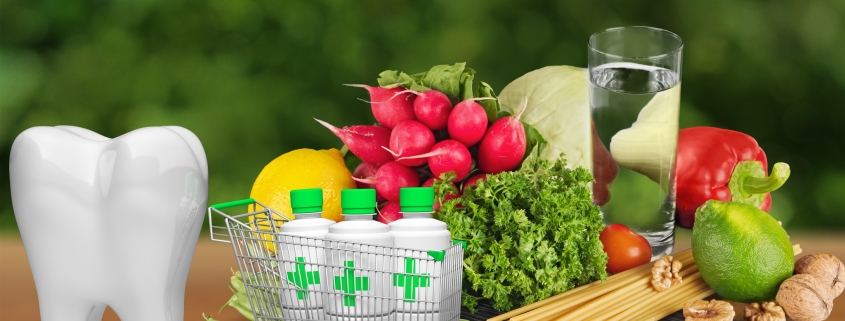The Effect of Food on Dental Problems
Oral health is deeply interconnected with diet and nutrition, as the foods and beverages we consume play a pivotal role in the development or prevention of dental problems. While brushing, flossing, and regular dental checkups are crucial, dietary choices significantly influence the overall health of our teeth and gums. Understanding how food impacts oral health can empower individuals to make better choices for a brighter smile and stronger teeth.
How Food Affects Dental Health
1. Sugar and Dental Decay
One of the primary culprits behind dental problems is sugar. When sugar is consumed, it interacts with the natural bacteria in the mouth to produce acid. This acid attacks the enamel—the protective outer layer of the teeth—leading to demineralization and eventually cavities.
Key contributors include:
Sugary snacks like candies, cakes, and cookies.
Sugary beverages such as soda, energy drinks, and sweetened juices.
Sticky sugars, like those found in caramel or gummies, are particularly harmful as they adhere to the teeth for extended periods, prolonging acid exposure.
2. Acidic Foods and Enamel Erosion
Acidic foods and beverages can weaken tooth enamel, increasing the risk of sensitivity and decay. Frequent consumption of citrus fruits, tomatoes, or carbonated drinks can lead to enamel erosion, a condition where the enamel becomes thin and fragile. Over time, this exposes the underlying dentin, making teeth more sensitive to hot, cold, or sweet foods.
3. Refined Carbohydrates and Bacterial Growth
Foods high in refined carbohydrates, such as white bread, crackers, and chips, break down into simple sugars in the mouth. These sugars feed harmful oral bacteria, increasing plaque buildup and the risk of gum disease and cavities.
Protective Foods for Oral Health
Just as some foods contribute to dental problems, others can protect and strengthen teeth. Here’s how certain dietary choices promote better oral health:
1. Calcium and Phosphorus for Strong Teeth
Calcium and phosphorus are critical minerals that help rebuild and strengthen enamel through a process called remineralization.
Foods rich in these nutrients include:
Dairy products like milk, cheese, and yogurt.
Leafy greens such as kale and spinach.
Nuts, particularly almonds and Brazil nuts.
Fatty fish like salmon.
2. Crunchy, High-Fiber Foods
Crunchy fruits and vegetables, such as apples, carrots, and celery, stimulate saliva production. Saliva is essential for washing away food particles, neutralizing acids, and providing calcium and phosphate to the teeth. This natural cleaning process reduces the risk of plaque accumulation.
3. Fluoride-Rich Foods
Fluoride strengthens enamel and helps prevent decay. While it is commonly added to drinking water, some foods also contain fluoride, such as tea and seafood. Incorporating these into your diet can provide additional protection.
The Role of Saliva and Hydration
Saliva acts as the mouth’s natural defense system. It helps:
Neutralize acids produced by bacteria.
Wash away food debris.
Provide minerals for enamel repair.
A well-hydrated body ensures an adequate production of saliva. Drinking plenty of water, especially fluoridated water, supports this process. Avoiding alcohol and caffeinated drinks, which can cause dry mouth, is also essential for maintaining a healthy oral environment.
Foods to Limit or Avoid
To minimize dental problems, certain foods and habits should be avoided or consumed in moderation:
Sugary and Sticky Sweets: Opt for sugar-free alternatives or eat sweets as part of a meal rather than a snack.
Acidic Beverages: Drink acidic drinks like soda or lemonade through a straw to minimize contact with teeth.
Hard Candies and Ice: Chewing on these can cause cracks or chips in the enamel.
Practical Tips for Maintaining Dental Health Through Diet
Pair Foods Wisely: Combine potentially harmful foods (like sugars or acids) with protective ones (like cheese or nuts) to neutralize their effects.
Limit Snacking: Frequent snacking increases the exposure of teeth to acids and sugars. Allow time for saliva to neutralize acids between meals.
Rinse After Eating: Rinsing with water or chewing sugar-free gum can help remove food particles and stimulate saliva production.
Practice Moderation: Enjoy indulgent foods occasionally, but balance them with nutrient-dense options.

